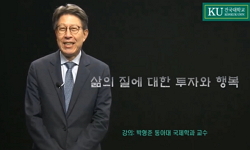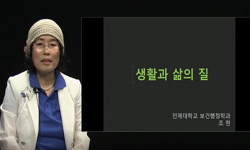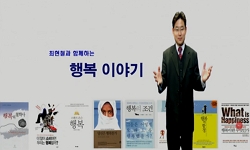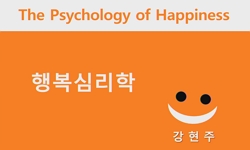삶의 질은 행복과 직결되며 사회의 발전 정도를 나타내는 지표로 작용한다. 그러나 한국 국민의 삶의 질을 조사한 국제 비교 결과들을 보면 한국의 삶의 질은 상당히 낮은 수준에 머물고 있...
http://chineseinput.net/에서 pinyin(병음)방식으로 중국어를 변환할 수 있습니다.
변환된 중국어를 복사하여 사용하시면 됩니다.
- 中文 을 입력하시려면 zhongwen을 입력하시고 space를누르시면됩니다.
- 北京 을 입력하시려면 beijing을 입력하시고 space를 누르시면 됩니다.

삶의 질 영향요인 추세분석 = Trend Analysis of ‘Quality of Life’ - Focusing on the Bottom-up Spillover Theory -
한글로보기https://www.riss.kr/link?id=A105672502
- 저자
- 발행기관
- 학술지명
- 권호사항
-
발행연도
2018
-
작성언어
Korean
- 주제어
-
등재정보
KCI등재
-
자료형태
학술저널
-
수록면
35-72(38쪽)
- DOI식별코드
- 제공처
- 소장기관
-
0
상세조회 -
0
다운로드
부가정보
국문 초록 (Abstract)
삶의 질은 행복과 직결되며 사회의 발전 정도를 나타내는 지표로 작용한다. 그러나 한국 국민의 삶의 질을 조사한 국제 비교 결과들을 보면 한국의 삶의 질은 상당히 낮은 수준에 머물고 있다. 이에 주목하여 본 연구는 2009년부터 2013년까지 추세분석을 실시하여 시기별로 삶의 질 영향요인의 변화를 살펴보고, 상향확산이론을 적용하여 국민 개인을 둘러싼 각 삶의 영역에서 삶의 질에 중요한 영향을 미치는 주요 요인을 규명하고자 하였다. 분석 결과, 2009년부터 2013년까지 모든 연도에서 공통적으로 가구소득, 소비생활 만족도, 사회적 관계망, 단체참여, 문화여가생활 만족도, 그리고 생활여건 만족도 변수가 삶의 질에 통계적으로 유의한 긍정적 영향을 미치는 것으로 나타났다. 한편, 세대별 삶의 질 인식 차이는 일부 연도에서만 유의한 것으로 나타나 세대별 차이는 제한적인 것으로 밝혀졌다. 이상의 분석을 통해 국민의 삶의 질 제고를 위한 정부의 노력이 어느 영역에 집중될 필요가 있는지 구체적으로 규명하고자 한 본 연구의 시도는 의의가 있다고 할 수 있다.
다국어 초록 (Multilingual Abstract)
The ‘quality of life’ is directly linked to happiness and is an indicator of the degree of social development. According to the international comparison of the quality of life, however, the level of the quality of life in Korea is fairly low. In t...
The ‘quality of life’ is directly linked to happiness and is an indicator of the degree of social development. According to the international comparison of the quality of life, however, the level of the quality of life in Korea is fairly low. In this study, the changes in factors affecting the quality of life are studied by conducting a trend analysis from 2009 to 2013. The purpose of this study is to identify the main factors which have significant effects on the quality of life in individual level by applying a bottom-up spillover theory. The results show that variables such as ‘household income’, ‘satisfaction in consumption’, ‘social network’, ‘association participation’, ‘satisfaction in leisure and cultural life’, and ‘satisfaction in living condition’ have positive effects on the ‘quality of life’ in common from 2009 to 2013 with statistical significance. On the other hand, the influence of ‘generation’ is found to be somewhat limited in that this factor shows significance only in the years of 2009 and 2011. It can be said that the attempts of the present study to specifically identify the factors and the policy focuses of the government’s effort to improve the quality of life was meaningful.
목차 (Table of Contents)
- 국문요약
- Ⅰ. 서론
- Ⅱ. 이론적 논의 및 선행연구 검토
- Ⅲ. 자료 구성 및 변수 측정
- Ⅳ. 실증분석 결과 및 논의
- 국문요약
- Ⅰ. 서론
- Ⅱ. 이론적 논의 및 선행연구 검토
- Ⅲ. 자료 구성 및 변수 측정
- Ⅳ. 실증분석 결과 및 논의
- Ⅴ. 결론
- References
동일학술지(권/호) 다른 논문
-
Stressors, Self-esteem, Social Activities, and Depression
- 이화여자대학교 이화사회과학원
- Joohee Lee
- 2018
- KCI등재
-
자기효능감과 낙관적 편견이 유방암 검진 의도에 미치는 영향 연구
- 이화여자대학교 이화사회과학원
- 구윤희(Yunhee Ku)
- 2018
- KCI등재
-
An Assesment of Internal Marketing Applications in Private Health Enterprises
- 이화여자대학교 이화사회과학원
- Michalis Toanoglou
- 2018
- KCI등재
-
- 이화여자대학교 이화사회과학원
- 원숙연(Won, Sook Yeon)
- 2018
- KCI등재




 RISS
RISS DBpia
DBpia







